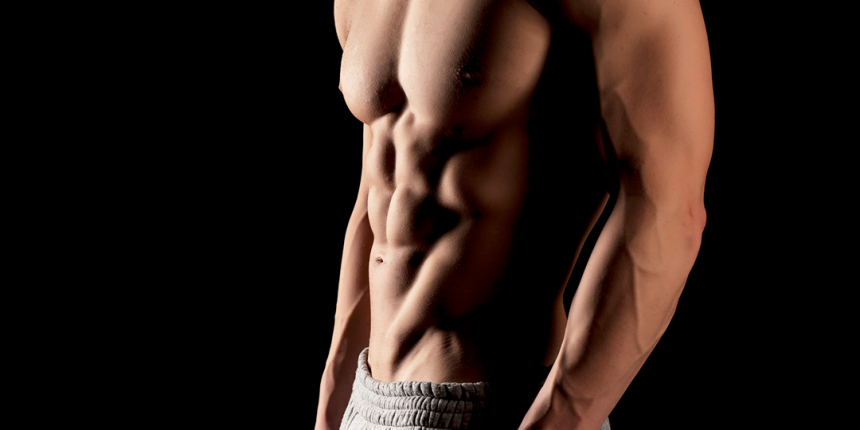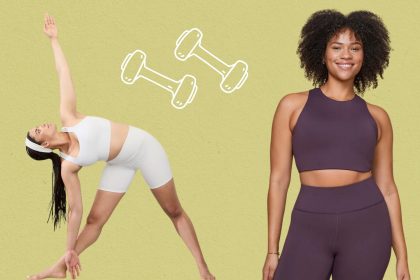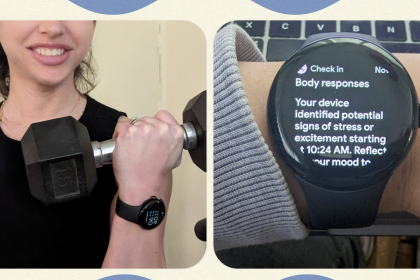Some muscles are like fashion trends. Their owners flaunt them, dress to feature them, and post about them. Different muscles can lurch in and out of fashion depending on the whims of the public and the popularity of the celebrities who display them.
A recent addition to this A-list of fashionable body parts — particularly for men — is the Adonis belt. This coveted muscular accessory appears to be a pair of muscles in the lower abdomen.
But there’s a surprise: The Adonis belt isn’t actually a muscle. But if you’re jonesing to make yours pop, read on.
What Is the Adonis Belt?

Unlike, say, the glutes or the biceps — meaty hunks of contractile tissue — the Adonis belt isn’t a muscle but an anatomical feature, like, say, the divots above your collarbones or the protruding bones on the sides of your ankles.
The belt is formed by two valleys that run diagonally downward and inward from the outer edges of your iliac crests, or hip bones, toward your groin. Seen from the front, these twin valleys, known to anatomists as the inguinal lines, form a “V” shape that outlines your lower torso.
The Adonis belt is particularly prominent on athletic men, due in part to the tendency for male athletes to carry less fat than women.
If you’re looking for ways to highlight your v-line, here are some tips for getting them to show.
1. Dial in your diet

As with the rectus abdominis, or six-pack muscle, the most crucial tool for bringing out the Adonis belt isn’t an exercise at all: It’s what you eat. Exercises for the area around the Adonis belt are valuable, but you’ll never see the inguinal crease clearly unless you whittle your body fat to fairly rarified levels of leanness.
The athletes with prominent Adonis belts — elite swimmers, cyclists, gymnasts, and physique athletes — typically have exceptionally low body fat from head to toe. If you want prominent inguinal ligaments, you’re going to have to take steps to follow suit.
Since you can’t spot-reduce or trick the body into burning the fat from specific areas of the body with targeted exercises, you’ll need to get there through good old-fashioned clean eating with an emphasis on dropping body fat and building muscle.
To really dial in your definition, you can take some of these steps to reduce water weight as well.
This is easy advice to give but by no means is it easy to follow. That’s part of why Adonis belts that look like garden snakes are about as rare as five-carat diamonds. Few people have the time, energy, or willpower to put in the work, day after day, that’s required for them to show.
2. Exercise at high intensity
Building your ab muscles won’t do you much good if they’re obscured by a layer of belly fat. Along with the right diet, vigorous exercise is necessary to help you drop fat and make your ab muscles more visible.
High-intensity interval training (HIIT) can be especially helpful in this regard, as it requires a longer recovery period and keeps your calorie burn elevated for up to 48 hours after you finish the workout (also known as the “afterburn effect“). The longer you work out at a high intensity, the longer your body continues to burn calories after you’re done.
3. Strength train

We’ll get to specific exercises to bring out your Adonis belt in a moment. For now, we’re talking about doing full-body strength training workouts three to four times per week, using compound exercises like squats, deadlifts, lunges, presses, dips, rows, and pull-ups. You’ll also need to build lots of core work into this routine.
Compound movements burn more calories, but their main function is to preserve and even grow muscle tissue while you’re consuming fewer calories than you’re expending. That’s essential: Strength work ensures that your body burns fat (not muscle tissue) while you’re following a strict meal plan.
4. Choose the right parents
You can’t do anything about this one, of course, but we’d be remiss not to include this tip in our list: A defined Adonis belt — like many if not most physical traits — is in large part a function of genetics. As with visible abs, the biggest factor in determining whether you can easily develop a prominent Adonis belt may be genetic.
Some people just have them — or can develop them quickly — and others don’t (or can’t). That, as geneticists say, is the way the ol’ double helix divides.
What Exercises Should You Do?
Now for the easy(ish) part: The specific moves to do in the gym that will accentuate the muscles of the lower abdomen once you’ve carved off sufficient fat to be able to see them. You should perform two to three sets of these moves for V-line abs two to three times a week on nonconsecutive days as part of your regular workouts, preferably before your other exercises.
1. Twisting hanging knee raise

- Hang from a chin-up bar using an overhand grip.
- Draw your knees to your chest as high as possible, then hold for a count of two.
- Lower your legs to the starting position.
- Draw both knees upward in the direction of your right elbow, and hold for a count of two.
- Lower your legs to the starting position.
- Repeat the previous step, this time lifting your legs in the direction of your left elbow.
- Repeat for 6 to 10 reps (i.e., at least twice in each direction — center, left, right).
2. Side plank

- Lie on your right side with your legs straight, feet stacked, and right forearm flat on the floor.
- Engage your glutes and core as you raise your hips so that your body forms a straight line from head to heels. (At this point, the outside edge of your right foot and your right forearm are the only parts of you that touch the floor.)
- Hold this position for 30 to 60 seconds, then switch sides and repeat.
- Too easy? Raise your top leg away from the bottom leg and hold.
3. Stability ball knee tuck

- Assume a push-up position with your shins elevated on a Swiss ball (exercise ball). Your palms should be shoulder-width apart on the floor, and your body should be straight from head to heels.
- Keeping your core engaged, draw your knees into your chest.
- Hold for a count of two, and then reverse the move to return to the starting position. Do 10 to 20 reps.
4. Suitcase carry

- Hold a heavy dumbbell in your right hand and stand tall with the dumbbell by your side.
- Keeping your core engaged, walk forward for 30 to 45 seconds while maintaining level shoulders and a proud chest.
- Switch hands and repeat.
Is It Healthy to Have an Adonis Belt?
A clearly defined Adonis belt certainly looks cool. It’s a hallmark of hard work and discipline in and out of the gym. But that’s about all it is. An Adonis belt doesn’t denote health or athletic prowess any more than a nice set of biceps do. Some fit people have defined Adonis belts; many fit people don’t.
That brings up a final point: Many of us see a well-developed physique — even an extremely muscular, defined one — and assume that its owner is exceptionally healthy. That’s not always the case. Paradoxically, the pursuit of an extremely fit-looking body can lead people to make some very unhealthy choices. Extremely low body fat, for example, can be just as unhealthy as being overweight — sometimes more so.
So if getting a defined inguinal ligament fires you up to work out more and eat a little better — do it. But don’t sacrifice your health in the process.







